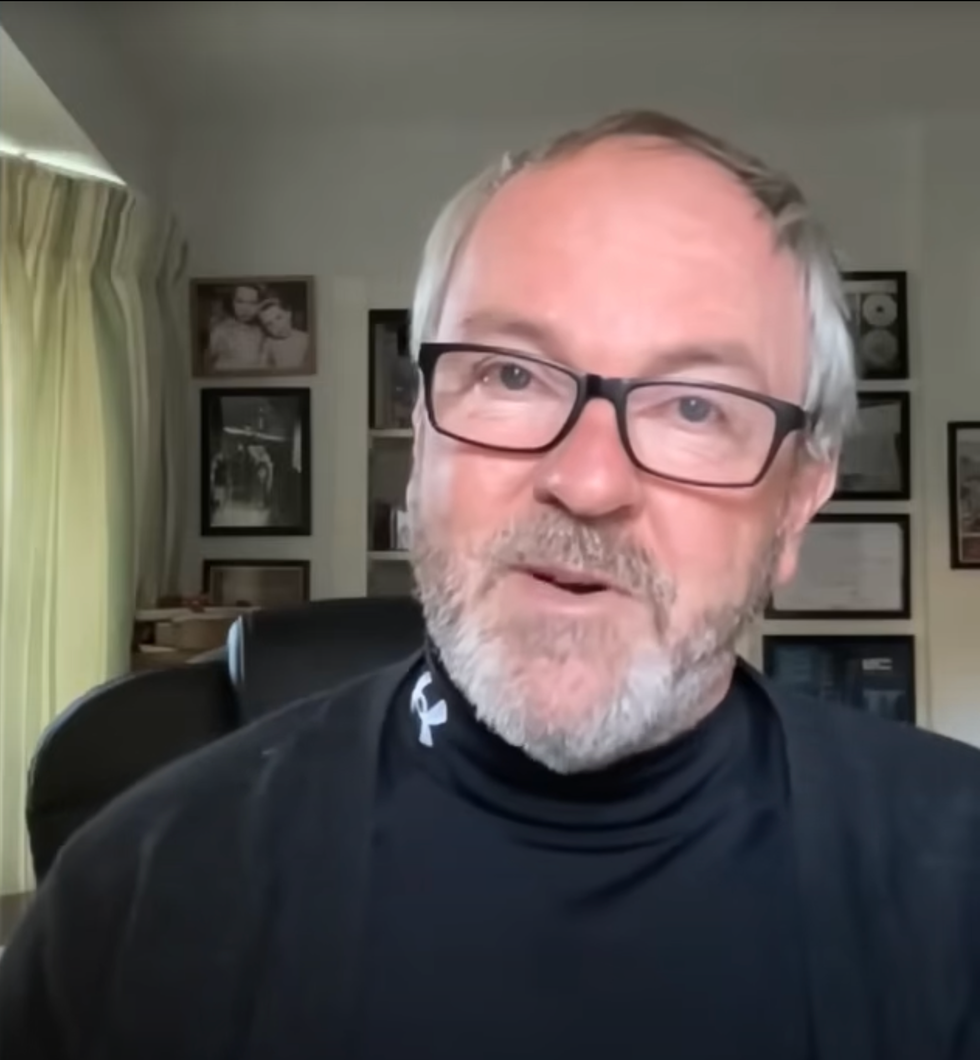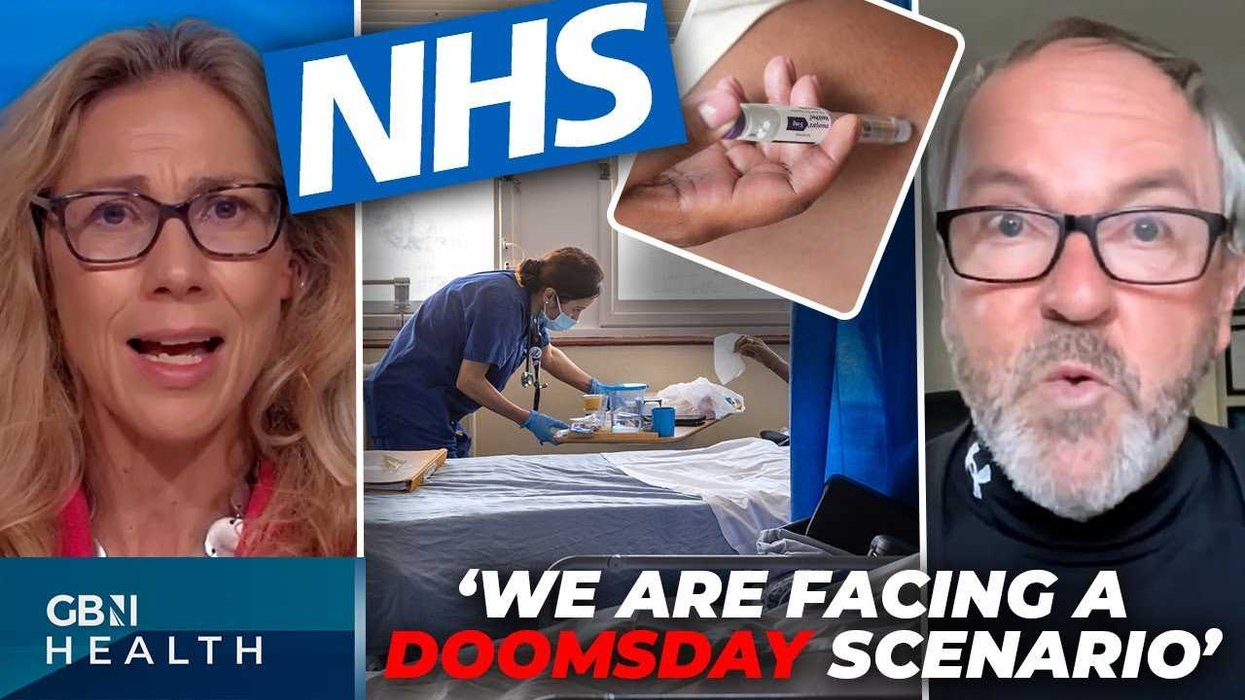The NHS will ‘spiral into financial collapse’ as thousands face dying this winter, Oxford professor warns
Waiting just six hours in A&E raises your risk of death by 60 per cent, research shows, compared with being seen within two hours
Don't Miss
Most Read
Latest
The NHS is heading for financial ruin and another deadly winter crisis unless Britain stops wasting billions on drugs and diagnostics that “do little or nothing” for patients, a top Oxford professor has warned.
Talking to GB News, Professor Carl Heneghan, director of Oxford University’s Centre for Evidence Based Medicine, said the service is being “captured by vested interests” and being poured into the wrong areas leaving emergency and cancer patients facing deadly waits while billions are funnelled into pills, weight-loss jabs and screening programmes of questionable value.
He said the health service risks collapsing under the weight of ineffective treatments, spiralling waiting lists, and lifestyle diseases like obesity and diabetes.
“Unless we change course,” he told GB News, “the NHS will spiral into financial collapse. People are already dying while they wait.”
TRENDING
Stories
Videos
Your Say
His warning comes after the Royal College of Emergency Medicine revealed that 14,000 excess deaths in 2023 were linked to long A&E waits.
Waiting just six hours in A&E raises your risk of death by 60 per cent, research shows, compared with being seen within two hours. At 12 hours, the risk more than doubles.
Professor Heneghan The Oxford academic, who runs the substack Trust the Evidence with colleague Tom Jefferson told the podcast that the NHS is “failing at the basics,” such as cancer and urgent care.
He said: “Our cancer outcomes are among the worst in Europe and patients are waiting too long to get seen and treated. Once you have a diagnosis of cancer, you should be treated within a week but many are waiting months.

Professor Carl Heneghan, director of Oxford University’s Centre for Evidence Based Medicine, said the service is being “captured by vested interests” and being poured into the wrong areas
|GB NEWS
“Imagine your GP suspects you’ve got cancer, you’ve lost weight, you’ve got a persistent cough. You’re waiting two months just for a diagnosis. By then the disease has advanced.
“Unless we change course, the NHS will spiral into financial collapse,” he told GB News Originals. “We’re about to put another £20 billion into healthcare spending - that will take spending to £200 billion - and yet we sit here today with huge, huge problems.”
“Imagine your GP suspects cancer — red flags like losing weight, a persistent cough — and yet you’re waiting two months for a diagnosis. People are dying while they sit on waiting lists,” he said.
Prof Heneghan accused the NHS of “over-medicalising daily life” with antidepressants, unnecessary tests, and over-hyped vaccines - while failing to deliver timely life-saving care.
“8.9 million people are on antidepressants, 93 million prescriptions a year,” he said. “Yet trials show only small statistical differences - not clinically significant changes to most of those who take them with moderate to mild depression. They don’t alter the course of what happens next.”
On flu vaccines, he pointed to the gold-standard Cochrane review of 52 trials involving 80,000 adults.
“Every winter we’re told ‘get the flu jab, it will save lives.’ But the evidence shows otherwise. The absolute difference is tiny - for every 71 people vaccinated, you prevent one infection. There’s little or no impact on hospitalisations or deaths. That’s the reality,” he said.
“If billions are being spent here, that’s money not going into A&E or cancer care where we know lives can be saved.”
Prof Heneghan also questioned the claims made for Covid vaccines. “People were told the jabs stopped transmission - yet the trials didn’t even study that. In the rush and frenzy, things were said that simply weren’t true,” he said.
He pointed out regulators allowed a “ten-year approval process to be shoehorned into months,” bypassing key safety steps.
“We know they increase the risk of (potentially deadly heart condition) myocarditis, particularly in young people. Other adverse effects like Bell’s palsy (facial paralysis) were flagged. But pregnant women weren’t properly studied, and data was suppressed,” he said.
He added: “It’s a failure of the evidence base. I’m not sure we’ll ever find out the full truth.”
He criticised Health Secretary Wes Streeting’s efforts to widen the availability of weight-loss injections as part of Labour’s plan to tackle obesity, as a “dangerous quick fix.”
He said: “Weight-loss drugs work while you’re on them, but the problems are serious side effects: pancreatitis (inflammation of the pancreas), blindness, maybe pancreatic cancer. The cost is exorbitant,” he said.
“If we rolled them out to 3.5 million clinically obese people, it would swallow up to 50% of the drug budget. Right now it’s around £170 a month privately. Demand is outstripping supply. But this is no fix for obesity - it’s a vicious cycle: sell people more food, then sell them the jab to deal with it.”
Instead, he argued, Britain should tackle its “toxic food environment” and invest in long-term prevention.He also pointed to statins - prescribed to around 8 million people in the UK - as another example of waste.
“The number needed to treat for any benefit is huge. To prevent one heart attack, you need to give them to over 400 older individuals without prior disease. And they have no significant impact on overall mortality. Yet we keep prescribing them because that’s the industry line,” he said.
He said many costly cancer drugs were also wasting resources: “As many as half do very little - they don’t meaningfully extend life. Yet billions are poured into them.”
He pointed to 7.4 million cases in July 2025, with about 2.9 million patients waiting over 18 weeks for treatment. A recent survey by the Independent Healthcare Providers Network found over half a million people paid privately for surgery last year, up sharply on pre-pandemic levels.
“If you think we can afford this trajectory, you’re mistaken,” Prof Heneghan said. “By 65, half the population already has two or more chronic conditions. In the next decade, it’ll be two-thirds. There just isn’t enough money to service that.”
The professor said the NHS must return to “doing the basics really well” — like ambulance response and A&E care - instead of being distracted by expensive but marginal interventions.
“If someone’s in cardiac arrest, every minute counts. Yet we’ve got people waiting 30 minutes or more for an ambulance. That’s why people will die waiting this winter,” he warned.
“We don’t need more AI tools or gimmicks. We need more doctors and nurses on the front line, treating patients,” he said.
A Department for Health and Social Care spokesman said: “We are working closely with the NHS to prepare for winter - from ‘war game’ exercises, to extra checks for the most vulnerable and rolling out vaccines - to ease pressure on hospitals and ensure patients get the care they need.
“We’re investing nearly £450 million to expand urgent and emergency care facilities so patients get better, faster emergency care.
“We have also made progress on cancer diagnosis rates, with 92,000 more people having cancer diagnosed or ruled out within 28 days between July 2024 and August 2025, compared to the same period the previous year.
“It’s easier than ever to book vaccine appointments available at GP surgeries, pharmacies and community centres across the country so get vaccinated to protect yourself, and your loved ones this winter.”











